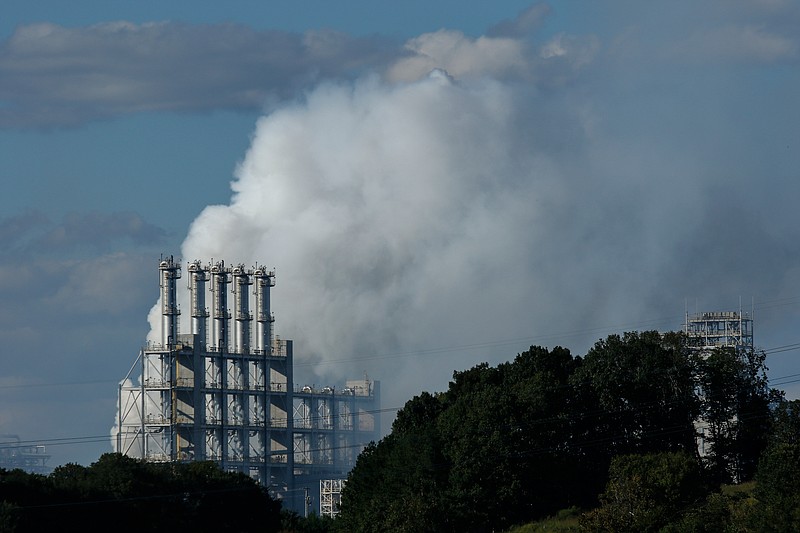Wacker Polysilicon announced Tuesday it is closing its Charleston, Tenn., plant, possibly for "several months," as the investigation continues into the cause of a Sept. 7 explosion that sent a plume of hydrochloric acid into the air and continues to leak small-dose "burps" of the estimated 6 tons of the chemical chlorosilane there.
Shawn Fairbanks, director of Bradley County Fire & Rescue, and Troy Spence, Bradley County Emergency Management Agency Director, told Times Free Press reporter Mark Pace last Friday that there was no way to safely remove the chemicals and they now leak as they are exposed to moisture in the damaged pipes.
"It's not safe, but [Wacker] can't get in there to get it out," Fairbanks said. "Part of the problem is they can't enter the building because it is not structurally sound."
In announcing the closure Wednesday, Wacker officials said an equipment malfunction led to a hydrogen explosion that damaged piping. The piping leaked the chlorosilane, a chemical that creates hydrogen chloride as it comes into contact with moisture in the air.
Wacker officials also said - as they have several times - "there was no risk to the community."
Roads in the area and Interstate 75 were closed for hours. Residents and school children were forced to shelter in place and told to shut off their heat and air systems. A plant worker, a firefighter, four deputies and seven local residents were treated at hospitals after the explosion - which Wacker termed "an incident."
That sounded then (and still sounds) like quite a bit of risk.
It was the second "incident" in eight days at the facility - five workers suffered chemical burns on Aug. 30 in a different area of the plant. And just days after the explosion there was a third "incident," one in which there was again a leak large enough to trigger a shelter-in-place warning at the plant.
Now we learn that there is a continuing problem. And we also learn that an undisclosed number of Wacker workers are apparently being shuffled between repairs and "advanced training" possibly for "several months."
The Tennessee Department of Environment and Conservation and the Occupational Safety and Health Administration are investigating the incidents.
Hydrochloric acid is a colorless to slightly yellow, corrosive, nonflammable gas that is heavier than air and has a strong irritating odor. Its corrosive vapors, and inhalation of the fumes, can cause coughing, choking, inflammation of the nose, throat and upper respiratory tract, and in severe cases, pulmonary edema, circulatory system failure and death, according to the Agency for Toxic Substances & Disease Registry, a federal public health agency of the U.S. Department of Health and Human Services. ATSDR also says skin contact with the gas can cause redness, pain and severe skin burns and eye damage. EPA rates and regulates the gas as a toxic substance.
The $2.5 billion plant manufactures chemicals for solar panels, and when the German company began looking at the Charleston, Tenn., site, it received one of the top five richest government incentive packages offered in Tennessee - $210.5 million in 2009 for 500 jobs at the polycrystalline silicon plant. That's $421,000 per job.
Are there claw-back clauses in those incentives? If not, why not?
This is a textbook case for why they might be needed.
We paid for the emergency responders that kept this from being worse.
We're paying for the state's TDEC investigation, and we're paying for the federal government's OSHA investigation.
More pointedly, we paid for those jobs that may well now be in limbo.
